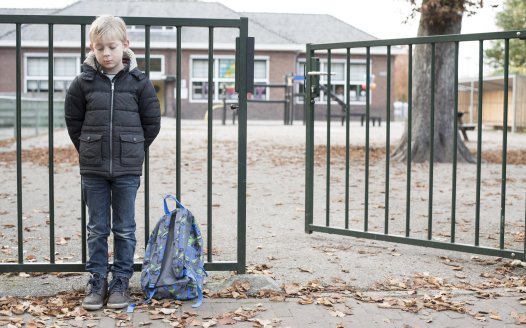“No evidence” that denominational schools are academically superior, study finds
Posted: Mon, 3rd Apr 2017
A report by the Institute for Public Policy Research has found that there is "no evidence" to suggest Scotland's denominational schools achieve better results than their non-denominational counterparts.
The study, on efforts to reform the governance of Scottish schools, reviewed policies aimed at closing the "persistent and entrenched gap in attainment" between students from richer and poorer households.
The analysis considered both denominational and non-denominational schools "to consider whether school types in Scotland have an effect on attainment."
When controlling for intake, the researchers found that, "overall attainment does not differ significantly between denominational and non-denominational schools, and there is no evidence to suggest that one school type or the other has better performance."
The director of IPPR Scotland Russell Gunson, who worked on the report, said: "Once you take account of intake, there is no evidence to suggest that denominational schools, or non-denominational schools see better school performance or attainment.
"It may or may not be the case that different school types add value in other ways, but on the issue of pupil attainment, the hard evidence shows that a religious ethos in itself doesn't make a difference."
Claims of superior academic results are one of the arguments made by proponents of more faith schools in England. But recent research by the Education Policy Institute found that after adjusting for "disadvantage, prior attainment and ethnicity" pupils in primary schools with a faith ethos "seem to do little or no better than in non-faith schools".
Pupils in secondary schools with a faith ethos record only "small average gains" over non-faith schools or "just one-seventh of a grade higher" in GCSE results.
The Education Policy Institute study concluded that such minute gains came with a risk "of increased social segregation".
It also noted that "the average faith school admits fewer pupils from poor backgrounds than the average non faith school."
Stephen Evans, the campaigns director of the National Secular Society, said: "This research demonstrates again the falsity of arguing that faith or denominational schools are more rigorous and successful.
"Faith schools can operate extremely convoluted admissions procedures and many are able to select their pupils from more affluent backgrounds than non-faith schools."
Academics at Leeds Beckett and Missouri universities published a paper last month arguing that excess time spent on religion in schools harmed progression in other subjects including maths and science.
Professor Gijsbert Stoet of Leeds Beckett University said, "Our research suggests that education might benefit from a stronger secular approach."







